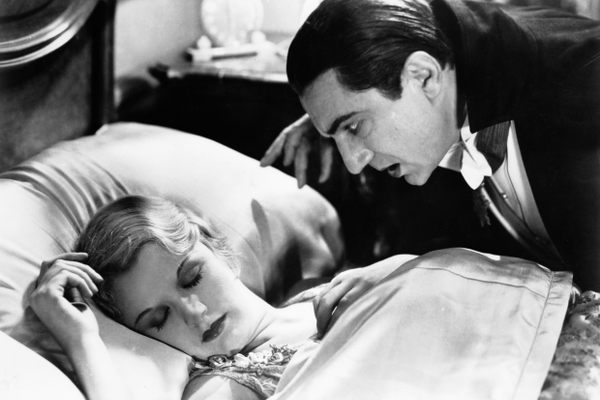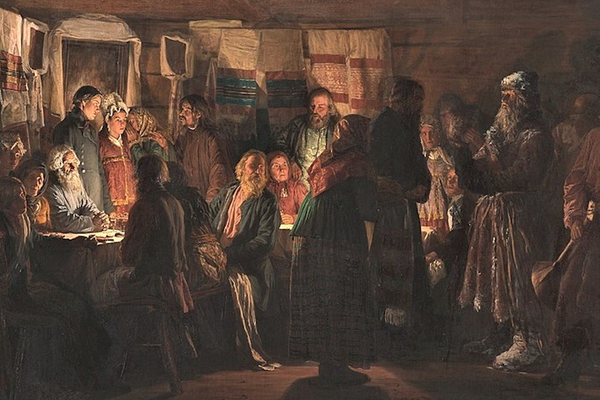Four Jobs for an Ancient Witch
31 Days of Halloween: On Atlas Obscura this month, we’re celebrating Halloween each day with woeful, wondrous, and wickedly macabre tales all linked to a real locale that you can visit, if you dare.
Relief of the witch Medea, daughter of the sun-god in Greek mythology (via Wikimedia)
In medieval Europe, witch-finders roamed the countryside. Full of fear and misplaced piety, armed with the witch-hunter’s handbook — the Malleus Maleficarum, Hammer of the Witches – they put to death hundreds of innocent women.
But in ancient Greece and Rome, witches were a fact of life. Certainly, there were legends of women with fearsome powers: Medea, daughter of the sun-god, could raise the dead and command the heavens. Hecate was the goddess of magic, witchcraft, and the moon. But witches also lived around the corner, down the street — or sometimes even in the apartment next door. (The first Roman emperor, Augustus, ordered all magicians to be expelled from Italy, but they seem to have returned soon afterwards.) Greeks and Romans took a very practical approach to the supernatural — gods could be haggled with, the entrance to the underworld was a grisly tourist attraction, and your neighborhood witch could be put to work.
While witches were feared, it was generally accepted that there were times to call one in. Just like a rat-catcher today, you would much rather not need a witch in the first place — but if you did, you’d want the baddest one of them all. Magic was a way to control and make sense of a baffling and inscrutable world. Long before science made the natural world understandable, magic offered leverage.
Here are four jobs an ancient witch might be asked to take on:
The Curse
Curse-tablets — thin sheets of lead with curses scratched into the surface — have been found throughout the Greek and Roman worlds. Victims of theft, furious lovers, cheated traders, angry litigants: anyone who had been wronged could use one of these tablets to try their luck with the gods. Rage boils off the ones which have survived, for example:
May [the thief] neither urinate nor shit nor speak nor sleep nor have well-being nor health unless he bring [what he has stolen] to the temple of Mercury.
Recent studies suggest that many curse-tablets were mass-produced: prepared for sale with the curse ready-made. All the purchaser had to do was fill in the victim’s name.
An ancient curse-tablet (via Wikimedia)
Curses flew left and right in cities such as Rome. It could be tempting to blame any misfortune on the evil intervention of a witch — as Ovid wryly did, when unable to perform in bed:
Was it some witch that wrote my name on the crimson wax and plunged a needle into my liver? The corn, stricken by a witch’s curse, soon dwindles into sterile grass, the springs run dry, the acorn falls from the oak, the grape from the vine and the fruit drops from the tree, though no one shake the bough. Since this is so, why should not magic numb the nerves? Perchance ’twas magic that turned me into ice.
The Lover’s Charm
While witches could stop love in its tracks, they could also smooth its path. Roman love-poets — forever in hapless pursuit of very inappropriate (and often very married) women — could be tempted by the possibilities. Tibullus, dodging an angry husband, recommended the services of a witch to his lover:
Your husband won’t believe a thing about us, the truthful witch
promised me that, with her magic rites.
I’ve seen her drawing stars down from the sky:
her chant turns back the course of the flowing river. […]
She composed a spell for me, that you can deceive with:
chant it three times, spit three times when you’ve done.
Then your husband will not be able to believe anyone about us,
not even himself if he saw us in your soft bed.
An ancient compendium of magic (via Wikimedia)
Debt Relief
Ancient authors were unafraid to laugh at even the most fearsome powers of the world. Greek comedy filled its cast with drunken gods, cowardly heroes, and bumbling leaders of all descriptions. Even witches were apt to lose their dignity on this stage. In Aristophanes’ Clouds, one of the characters contemplates employing a witch to draw down the moon and stop it rising. This was one of the powers witches were often said to wield. But in Aristophanes, the moon must not rise because debts, in Athens, were calculated by the lunar calendar — and if the moon never reappears, then the debts never have to be repaid:
STREPSIADES: I have a scheme for not paying my debts.
SOCRATES: Let us hear it.
STREPSIADES: Tell me, if I got hold of a Thessalian witch, I could make the moon descend during the night and shut it, like a mirror, into a round box and there keep it carefully....
SOCRATES: How would you gain by that?
STREPSIADES: How? why, if the moon did not rise, I would have no interest to pay.
SOCRATES: Why so?
STREPSIADES: Because money is lent by the month.
Portrait of Medea by Frederick Sandys (1868) (via Wikimedia)
Murder most ghastly
Magic, however, could turn dark in a heartbeat. Witches were certainly put to work outrageously in ancient literature. But the world remained a strange and scary place. Witches, if thwarted, could unleash fearsome powers — as Apuleius explores in the Metamorphoses. Here, the unfaithful wife of a miller asks a witch to weave love-magic — and reconcile her unfaithful husband with her. But when the witch is unsuccessful, the miller is set up for a very nasty end:
The miller’s wife sought out a certain ancient crone, who had a reputation for being able to accomplish absolutely anything through her witchcraft. She asked for one of two results, either that she should be reconciled with her husband, or if the witch could not do that, that at any rate a ghost should be sent to do violence to him and destroy him.
Then the witch tried to turn the husband’s mind from its deep-seated rage towards love. The plan did not work as she had intended. The witch became angry. Now she began to threaten the poor husband’s life - and summoned the ghost of a woman who had been violently killed, in order to kill him.
At around the middle of the day, a woman suddenly appeared in the mill, her face disfigured by unhappiness, clothed only in a wretched piece of patchwork cloth. Her tangled hair was caked in the ashes which had been scattered over it. She drew the miller aside to his room, and pulled the door to. His men began to suspect that something was amiss. They broke the door, and forced their way in. The woman was nowhere to be seen - but their master was hanging by a noose from a beam, already dead.
Click here for more of our 31 Days of Halloween, where each day we’re celebrating the strange-but-true unsettling corners of the world. And check in on Facebook, Tumblr, and Twitter to participate in the daily offerings of unsavory Halloween treats.













Follow us on Twitter to get the latest on the world's hidden wonders.
Like us on Facebook to get the latest on the world's hidden wonders.
Follow us on Twitter Like us on Facebook